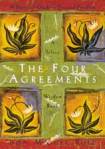“If you can’t say something nice, don’t say anything at all.”
That’s what my mother used to tell me, and it remains true today.
I’ve been thinking about Mother’s advice a lot lately, and I guess because I have, I have been receiving a lot of input from the Universe pertaining to the subject of complaining.
It all started with a message from Caroline Myss.
Caroline is conducting a workshop called Addiction: Explored as an Archetypal Journey Toward Personal Empowerment in August. She believes that the struggle with addictions may be one of the foremost defining health challenges of our age, and as indicated, her subject is addictions—but not those generally associated with the addicted personality: drugs, alcohol, food, and sex. Caroline maintains that there is a secondary ring and even a third ring of habits that most people would not even consider addictions. Among these more subtle obsessions is—you guessed it—complaining.
Complaining is, of course, a catch-all phrase for negative behavior; included with complaining are bad habits such as blaming, criticizing, whining, nagging, griping, moaning, worrying, suffering, and just generally acting like a victim.
Many well-known and respected authors and speakers have addressed how destructive complaining can be. For example, therapists Gay and Kathlyn Hendricks discuss the dangers of blaming and complaining in their Conscious Partnering Course. They claim that “blame and criticism is the #1 reason why relationships fail. Most couples split up, family members stop talking or business partnerships fail because one or both of the parties gets tired of being blamed or criticized.” In another section they go on to say that:
Unconscious manifestation thrives on complaining. We keep our childhood programming in place by complaining to willing listeners that we’ve been victimized. When people challenge us to take charge of our lives, we often get defensive and argue that our limiting beliefs are valid and necessary.
I also received a similar message from spiritual self-help teacher Arielle Ford. In her latest Soulmate Secret newsletter (#110, July 5, 2011), she writes that some people are addicted to suffering. They have lived in the pain of their “poor me” story for so long that they just can’t let it go, not even aware that they are attached to suffering. Arielle makes a point I agree with completely:
Ford. In her latest Soulmate Secret newsletter (#110, July 5, 2011), she writes that some people are addicted to suffering. They have lived in the pain of their “poor me” story for so long that they just can’t let it go, not even aware that they are attached to suffering. Arielle makes a point I agree with completely:
Suffering is optional. Suffering is a choice. Suffering comes from your story about what is happening in your life and less about what is actually happening. What is happening is simply what is happening. The suffering part comes from all your interpretations and meanings about the experience. Change your story and the way you are interpreting reality and you begin to change your reality. When you change your reality within yourself you shift your experience of your reality outside. Once you understand this, you only suffer if you choose to.
Of course, we all know that criticizing someone else is really a way of excusing our own behavior. It is too uncomfortable to blame ourselves because then we might have to take a close look inside—and we just might not like what we see.
These teachers do have suggestions for how to correct our negative habits, or even avoid them all together.
In her Addictions workshop, addiction will be explored as journey of personal empowerment. The tools she offers are:
- Discussion of certain archetypes that have a particularly dominant influence.
- Discussion of the nature of possession and what it means to “be possessed.”
- Methods and practices for moving out of the addictive cycle.
- Exercises aimed at doing personal work for a new perspective on addiction.
Life is too short to waste spent suffering.
- Accept what is.
- Embrace your current experience.
- Focus on what you can control.
- Embrace change.
- Take full responsibility for your current reality and give up blame.
- Be grateful.
- Tell the truth.
If you want to stop your unconscious patterns cold, stop complaining. Put yourself on a radical complaint-fast for one day.
- Discover what you complain about.
- Don’t let a single complaint out of your mouth.
- Discover the people you complain to (people who willingly listen to your complaints over and over).
- Commit to a life completely free of complaints; speak the following sentence aloud, from the bottom of your heart:
- I,___________, commit to a complaint-free life.
- As you flow through your week, float this affirmation through your mind and body:
- Blessings flow in the areas of my life I used to complain about.
In my next posting I want to tell you about a little book I read called The Four Agreements by Don Miguel Ruiz.
It’s been out awhile so you may have read it already. However, I think it’s worth a mention in connection with this discussion of negative behaviors and self-limiting beliefs—where they come from and what to do about them. In the meantime . . .
Blessings,
This Old Crone




You must be logged in to post a comment.